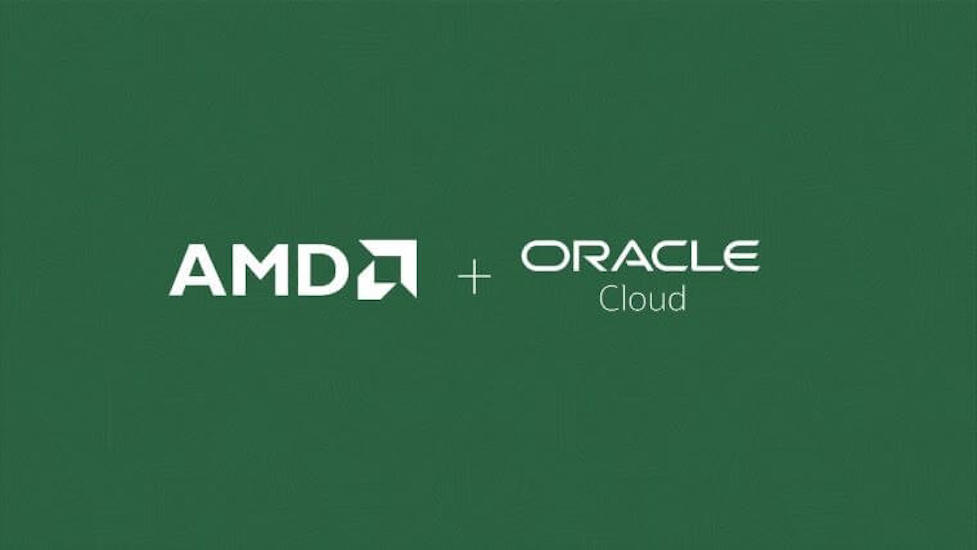
The News: Oracle will power its all new Oracle Cloud Infrastructure E4 Dense Compute Inferences with AMD EPYC processors as it expands its use of the AMD EPYC CPUs beyond Oracle’s existing E3 and E4 compute instances. The newly-announced E4 Dense Compute Instances, which are part of Oracle Cloud Infrastructure’s offerings for VMware users, are designed to enable customers to build and run powerful hybrid cloud environments for their VMware workloads. Read the full Press Release about the OCI E4 dense compute inferences on the AMD website here.
New Oracle Cloud Infrastructure E4 Dense Compute Inferences to be Powered by AMD EPYC Processors for VMware Users Running Hybrid Cloud Environments
Analyst Take: Oracle’s expanded use of AMD EPYC CPUs to power new Oracle Cloud Infrastructure for VMware customers is big news. This move will provide more options and more power for users to run their critical VMware workloads in hybrid clouds using Oracle Cloud’s latest E4 Dense Compute Instances that incorporate AMD EPYC third generation processors.
This move also benefits AMD, which is seeing an impressive expansion of its AMD EPYC processor presence within Oracle Cloud infrastructure by being part of the new OCI E4 Dense Compute Instances. AMD EPYC processors, which were previously used in earlier OCI E3 and E4 compute instances within Oracle Cloud Infrastructure, are included within the latest E4 Dense Compute Instances to support memory- and storage-intense VMware workloads in the hybrid cloud, according to Oracle.
I believe this is an excellent pairing, and one that will benefit all three companies, as well as their customers. The inclusion of AMD EPYC processors in the new Oracle Cloud E4 Dense Compute Instances will be appreciated by hybrid cloud customers who are always seeking improved performance, bolstered security, and a faster path to get their critical workloads into hybrid cloud environments.
Featuring Standardized VMware Tools Integration
And because the latest Oracle Cloud Infrastructure E4 Dense Compute Instance offering integrates the same familiar and certified VMware tooling used in on-premises OCI deployments, it will make it easier for customers to deploy and use for new and existing workloads in hybrid cloud situations.
In my view, expanding the use of AMD EPYC processors, Oracle Cloud Infrastructure E4 Dense Compute Instances and Oracle Cloud VMware platforms for hybrid cloud environments for customers will also bring improved flexibility for users, allowing them to tailor their workloads to 32-, 64-, or 128- core configurations as needed. That kind of flexibility is an excellent feature to have in your pocket when needed.
Overall, I think these new Oracle Cloud Infrastructure E4 Dense Compute Instances featuring AMD EPYC processors will be an intriguing new offering for hybrid cloud customers who are seeking greater performance compared to Oracle Cloud’s existing E3 and E4 instances. It will be interesting to watch how the new offering plays out with hybrid cloud customers.
Other Oracle Cloud Infrastructure E4 Dense Compute Instance Details
In its own blog post about the new offering Oracle said the third gen AMD EPYC processors used in the new E4 Dense Compute Instances have a base clock frequency of 2.55 GHz and a max boost (maximum frequency achievable by any single core on the processor under normal operating conditions for server systems) of up to 3.5 GHz. The E4 Dense instances also include up to 256MB of L3 cache, up to 2TB of RAM, 100Gbps of overall network bandwidth, and 54.4TB of raw NVMe internal disk space.
Disclosure: Futurum Research is a research and advisory firm that engages or has engaged in research, analysis, and advisory services with many technology companies, including those mentioned in this article. The author does not hold any equity positions with any company mentioned in this article.
Analysis and opinions expressed herein are specific to the analyst individually and data and other information that might have been provided for validation, not those of Futurum Research as a whole.
Other insights from Futurum Research:
Oracle Exadata Cloud Infrastructure X9M Raises the Cloud Database Market Stakes
Oracle’s Cloud Business Continues Growing Amidst Mixed Q3 Results
Oracle Extends Partnership with Red Bull Racing to Bring Next Level Innovation to Formula One
Image Credit: Oracle
The original version of this article was first published on Futurum Research.
Todd is an experienced Analyst with over 21 years of experience as a technology journalist in a wide variety of tech focused areas.


